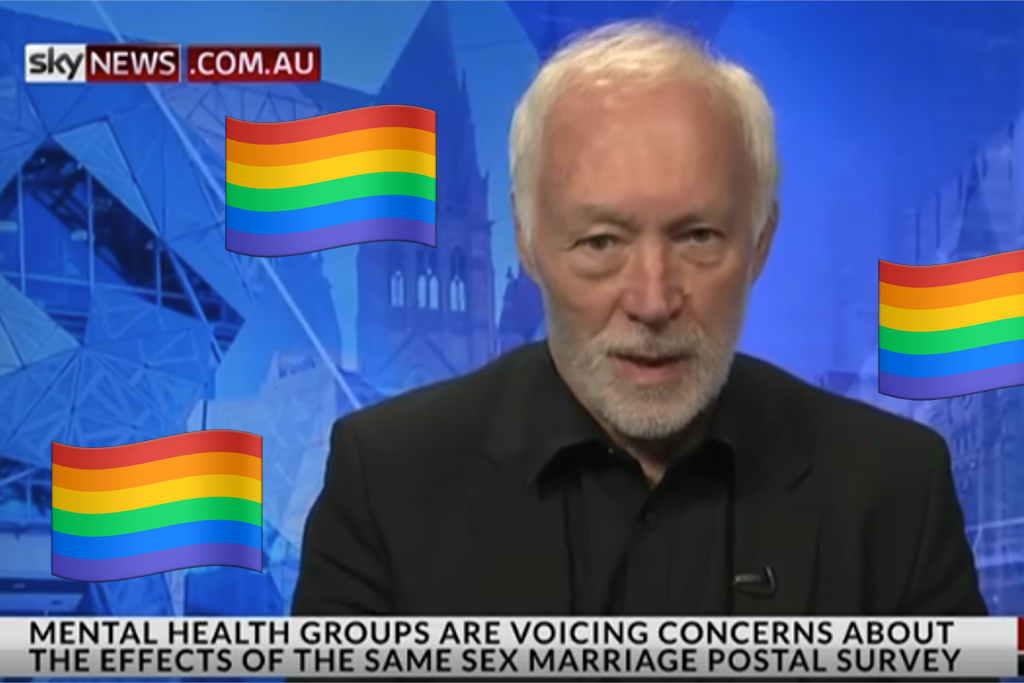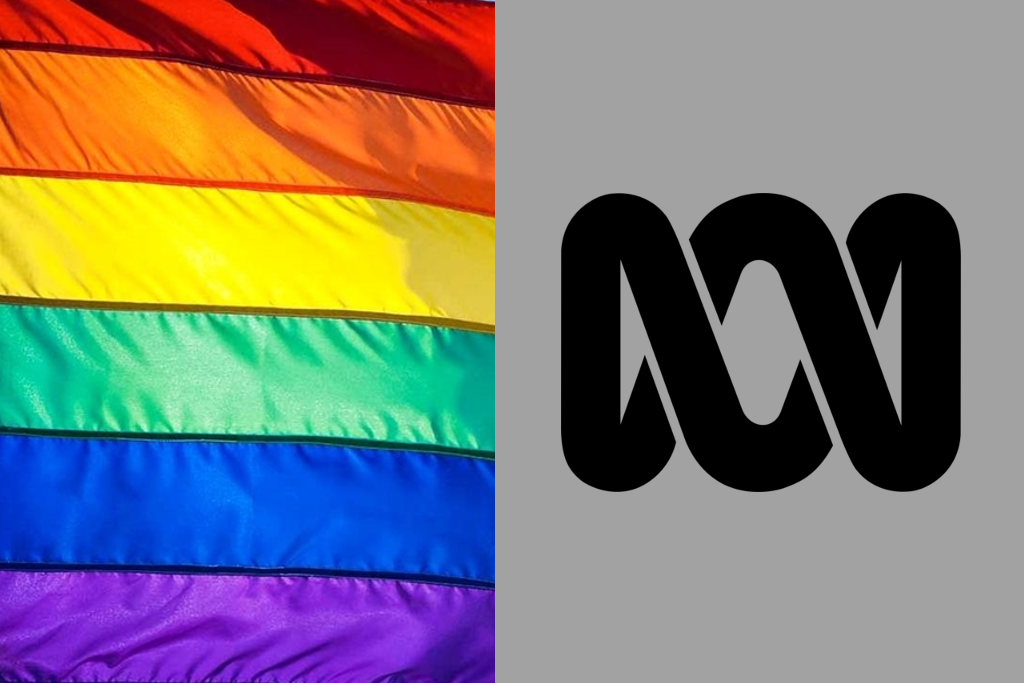Australia’s Leading Mental Health Expert Just Burned A Senator’s “Grow A Spine” Sledge
"They've put up with much more adversity than that particular MP is likely to experience in his life, and they’ve come through it."

Whenever LGBTQI+ people express anger or distress at having their basic humanity and rights debated by the entire nation, someone inevitably suggests they “grow a spine” or “settle down”.
Last week, that someone was Senator Matt Canavan, who responded to the National Mental Health Commission’s concerns about the detrimental mental health effects of the marriage equality survey by saying “can’t we all just grow a spine and grow up? The debate hasn’t been that bad”.
Today, leading mental health expert Patrick McGorry has responded by letting Canavan know that actually, young LGBTQI+ people have probably experienced way more adversity than the senator is likely to have faced in his entire life.
“I think the people he’s talking about have a very strong spine, actually,” McGorry told Sky News this morning. He then added one of the sickest burns of this whole postal survey, pointing out that young LGBTQI+ people have probably “put up with much more adversity than that particular MP is likely to experience in his life, and they’ve come through it.”
“That doesn’t mean they should be subjected to more of the same.”
McGorry went on to re-emphasise the point that Canavan was so happy to dismiss: that mental health organisations are seriously concerned about the spike in requests for help from LGBTQI+ young people they’re seeing at the moment.
“What I’ve seen clinically myself, working as a clinician in Headspace centres — and ReachOut can validate this experience too from their website — is young people, and perhaps not so young people, whose experiences growing up as a gender diverse person in Australia are being revived,” McGorry said.
“The bullying and persecution and discrimination they experienced at school — particularly at school, the bullying and those experiences are coming back to haunt them in a way they hadn’t really expected.”
Canavan's "grow a spine" comment when the high suicide rate of young LGBT people is well-documented is about as callous as it gets
— Rob Stott (@Rob_Stott) September 11, 2017
McGorry says the priority now, rather than belittling LGBTQI+ people’s distress, is to focus on ensuring mental health organisations are able to support them through the remainder of the postal survey. If you’re similarly struggling with the debate, please reach out to one of the many mental health services that are here to help you. We’ve got a post full of options for you here if you need it.
—
If you’d like to talk to someone after reading this (or at any point during the marriage equality campaign), QLife is a national counselling service for LGBTQI+ people, which operates between 3pm and midnight AEST every day. You can get in touch with them by calling 1800 184 527, or visiting their website if you’d prefer or require a text-based chat.
Read about your other options here.
